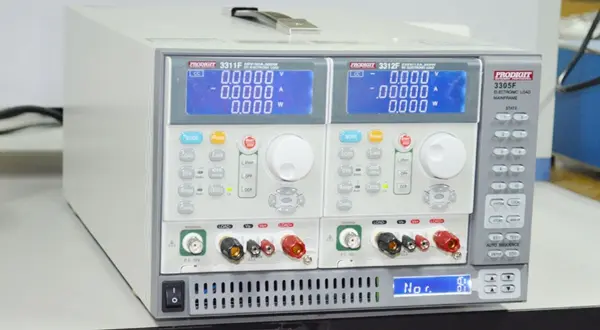
Lithium Batteries UL1642 vs. UL2054: What's the Difference?
UL certification for lithium batteries generally falls into two categories: ul1642and ul2054.
UL1642: For Lithium Battery Cells
UL1642 is a safety standard developed by Underwriters Laboratories Inc. (commonly referRED to as UL), first issued in October 1985. It is one of the most widely recognized international standards for evaluating the safety and reliability of lithium battery cellsunder various fault conditions.

Key Test Items for UL1642 Include:
1. Room temperature short-circuit test
2. 55°C short-circuit test
3. Overcharge test
4. Crush test
5. Impact test (heavy object)
6. Mechanical shock test
7. Vibration test
8. Thermal abuse (oven) test
9. Temperature cycling test
10. Altitude simulation test
11. Projectile test
UL2054: For Lithium Battery Packs
UL2054 applies to lithium battery packs, including both primary (non-rechargeable) and secondary (rechargeable) types used as power sources in products. These battery packs may consist of one or more electrocheMICal cells connected in series or parallel to convert chemical energy into electrical energy.
Key Test Items for UL2054 Include:
Electrical Tests:
1. Short-circuit test
2. Overcharge test
3. Abusive overcharge test
4. Over-discharge test
5. Limited power source test
Mechanical Tests:
1. Crush test
2. Impact test
3. Acceleration test
4. Vibration test
Additional Tests:
1. Battery pack enclosure test
2. Drop impact test
3. 250N force static pressure test
4. Mold stress-relief test
5. Fire exposure test
6. Projectile test
7. Environmental testing
8. High-temperature test
9. Temperature cycling test
UL Listing Mark Categories
UL certification marks are divided into three main categories based on the target market:
1. UL Listing Mark:
The most commonly used mark. Found on a wide range of products including electrical appliances, computing equipment, ovens and heaters, fuses, power boards, smoke and carbon monoxide detectors, fire extinguishers and sprinkler systems, personal flotation devices (like life jackets and lifebuoys), bulletproof glass, and thousands of other products.
2. C-UL Listing Mark:
Indicates compliance with Canadian safety standards. Seen on products such as electrical and computing equipment, vending machines, home security alarm systems, lighting fixtures, and more.
3. C-UL US Listing Mark:
Indicates compliance with both U.S. and Canadian safety requirements.
Validity of UL Certificates
UL certificates do not have an expiration date. They are maintained through regular factory inspections and certificate maintenance fees. Factory audits are conducted quarterly, and audit records are required for ongoing certification.
Email:hello@jjrlab.com
Write your message here and send it to us
 How Do You Get a CE Mark
How Do You Get a CE Mark
 IEC 60529 IP Rating Ingress Protection Standard
IEC 60529 IP Rating Ingress Protection Standard
 IEC 60601-1 Medical Electrical Equipment Basic Saf
IEC 60601-1 Medical Electrical Equipment Basic Saf
 European Authorized Representative Medical Devices
European Authorized Representative Medical Devices
 EU Waste Electrical and Electronic Equipment Direc
EU Waste Electrical and Electronic Equipment Direc
 How to Get CE Approval
How to Get CE Approval
 Accelerated Ageing Test
Accelerated Ageing Test
 IP Ingress Protection Testing
IP Ingress Protection Testing
Leave us a message
24-hour online customer service at any time to respond, so that you worry!




